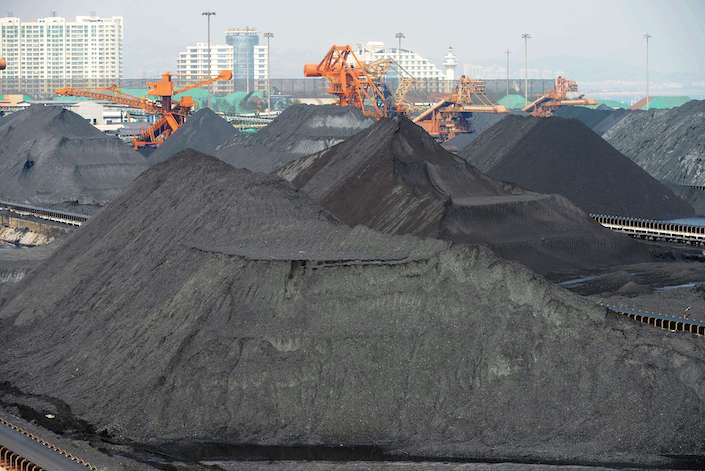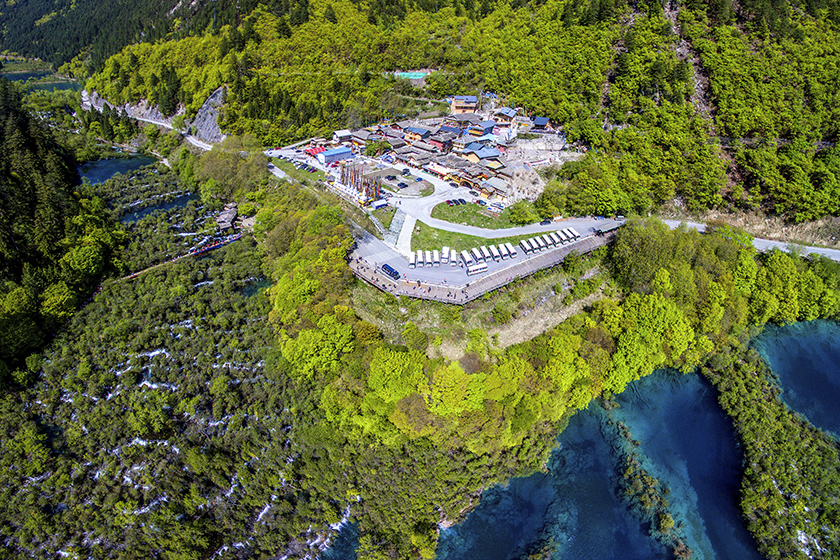CX Daily: Severe Coal Supply-Demand Imbalance Challenges Winter Supply

Coal /
Analysis: Severe coal supply-demand imbalance challenges winter supply
Recently, many regions in China have imposed a new round of power rationing. Due to shortages, Guangdong province (Guangzhou) and the three provinces of Northeast China have intervened in power markets. Some regions have even rationed the supply of electricity, directly putting some lives at risk. Behind the power shortage are key precipitating factors: rising prices and tight supplies of thermal coal.
Given the tight coal supply, related policies have been introduced to increase production and guarantee the supply of coal. However, industry participants expect the coal supply shortfall this winter to remain severe because coal inventories are too low.
China’s coal shortage means higher prices for the world
Evergrande /
In Depth: Evergrande auto races to convince investors it can make a car
“Toil for 120 days, ensure the smooth delivery of the first car,” read a large red banner draped across the office building of Evergrande New Energy Vehicle Group Ltd.’s (Evergrande Auto) factory in Tianjin, northeast China, last week.
While the rest of the country was enjoying a three-day public holiday to celebrate the Mid-Autumn Festival, workers were rushing to finish fitting out the body shop so the automaker could meet a mid-November deadline for pre-production of the Hengchi 5, Caixin learned on a visit to the plant. The pure-electric SUV is the closest to mass production out of the six models unveiled under the Hengchi marque in August last year, two sources with knowledge of the matter told Caixin.
Evergrande to raise $1.55 billion from sale of stake in regional bank
In Depth: Evergrande founder’s poker buddy folds on teetering developer
FINANCE & ECONOMY
Beijing seeks to host global board for sustainability in corporate reporting
Beijing is vying with London, Frankfurt, Tokyo and Geneva to become the host city of the International Sustainability Standards Board (ISSB), a proposed entity for setting global benchmarks for sustainability-related corporate reporting.
Being the world’s biggest carbon emitter is an advantage for China’s application, with its efforts to reduce emissions key to global sustainable development, said Ma Jun, director of the green finance committee of central bank-backed think tank the China Society for Finance and Banking, which mentioned Beijing’s bid at an annual meeting of the body Saturday.
Central bank /
PBOC governor warns central banks on quantitative easing
China’s central bank governor said quantitative easing implemented by global peers can be damaging over the long term and vowed to keep policy normal for as long as possible.
Central banks should try their best to avoid asset purchases because in the long run they will “damage market functions, monetize fiscal deficits, harm central banks’ reputation, blur the boundary of monetary policy and create moral hazard,” People’s Bank of China’s Governor Yi Gang said in an article posted by the central bank Tuesday.
Corruption /
Another China banking regulator probed for graft linked to Inner Mongolia
A senior official at China’s top banking regulator has come under an investigation by a local anti-graft body in the Inner Mongolia autonomous region, according to an official statement (link in Chinese) released Tuesday.
Cai Jiangting, 57, was appointed an inspector at the Law and Regulation Department of the China Banking and Insurance Regulatory Commission (CBIRC) in 2018, the statement showed. The department is responsible for drafting laws and rules for the banking and insurance industries, and proposing punishments for financial institutions’ wrongdoing.
Quick hits /
China Carbon Watch: National market’s trading volume slips during holiday week
BUSINESS & TECH
 |
CIMC, the world’s largest maker of shipping containers, controls over 40% of the global container market. |
Shipping /
China’s container giant CIMC acquires Maersk’s cold container manufacturing unit for $1 billion
China International Marine Containers Group Co. (CIMC) announced Tuesday that it has agreed to acquire Danish shipping giant A.P. Moller-Maersk A/S’s refrigerated container manufacturing unit for $1.08 billion, a deal that will give the Chinese company control of about half of the global container market.
The deal was signed Monday and is subject to anti-trust regulatory approval. CIMC, already the world’s largest maker of shipping containers, controls more than 40% of the global container market, while Maersk takes less than a 10% market share.
CIMC won the bidding among several suitors, including Chinese home appliance giant Midea Group Co., U.S. air conditioning giant Carrier Global Corp., transport temperature-control systems manufacturer Thermo King Corp., Japan’s Daikin Industries Ltd., and buyout firm Triton, Bloomberg reported, citing people with knowledge of the bidding.
Talents /
Xi vows to strengthen China’s efforts to cultivate top talent
President Xi Jinping pledged to strengthen efforts to develop the nation’s talent pool and build the country into a powerhouse of innovation, according to state media.
Xi said China aims to significantly increase investment in research and development by 2025 and create the foundation for a talent-fostering system that can help the country meet its goals for high-quality economic development, according to a report by the state-run Xinhua News Agency.
In his remarks, Xi highlighted the importance of nurturing domestic talent. “We must enhance our awareness of potential dangers, pay more attention to the independent training of talent and accelerate establishing competitive advantage in human resources,” Xinhua reported Tuesday.
Telecoms /
U.S. fleshes out ‘rip and replace’ plan for banned Huawei and ZTE tech
The U.S. telecoms regulator announced details of a $1.9 billion fund that will pay rural telecoms companies to remove and replace equipment and services from Chinese manufacturers Huawei and ZTE, which were deemed national security threats.
The so-called “rip and replace” program, which was finalized in July, will start accepting reimbursement applications on Oct. 29 through Jan. 14, according to a notice released by the U.S. Federal Communications Commission (FCC) on Monday.
Short videos /
Short video app Kuaishou restructures in bid to stem losses
Kuaishou Technology Co. Ltd. has undertaken a sweeping business restructuring — while keeping its core leadership more or less unchanged — as the short-video and livestreaming company grapples with widening losses and plummeting market capitalization.
According to an internal memo seen by Caixin, the Beijing-based firm will create an all-in-one department to operate its eponymous app, responsible for product development, operations, user growth, gaming ecosystem and search function. Wang Jianwei, who was the head of product development, will lead the department, reporting to co-founder Cheng Yixiao.
Quick hits /
China’s top two fertilizer firms fined for price gouging
Congo reviews $6.2 billion China mining deal as criticism grows
GALLERY
 |
UNESCO site Jiuzhaigou completely reopens |
Thanks for reading. If you haven’t already, click here to subscribe.

- MOST POPULAR





